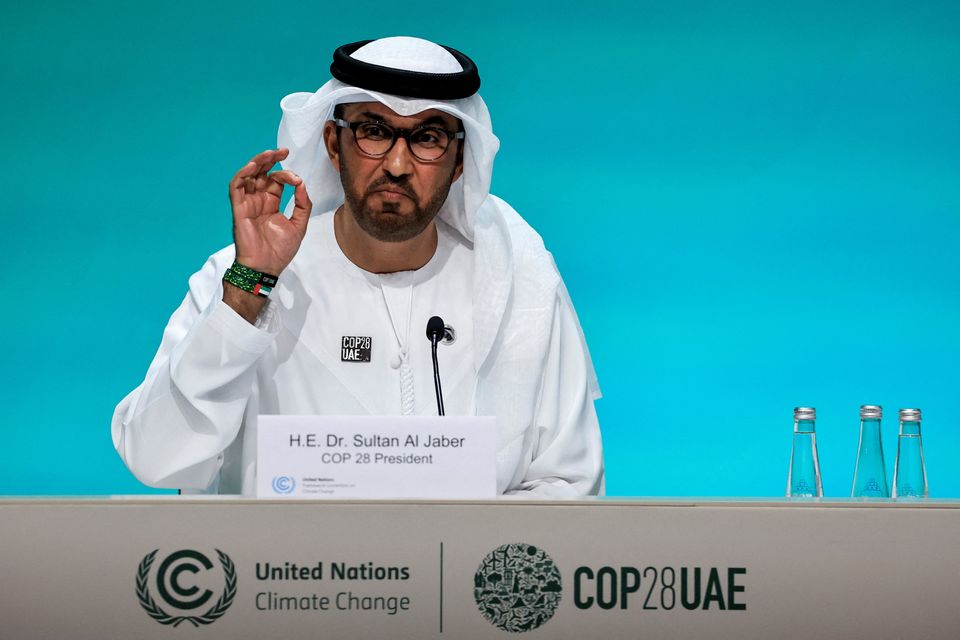Editorial: Phasing out of fossil fuels must be central to efforts to avert climate change catastrophe
COP28 president Sultan Ahmed Al-Jaber. Photo: Reuters
Talking, and pledging, big tends to be the hallmark of climate conferences.
Then, with everyone feeling a bit better about the modicum of progress they may have agreed upon, to avert disaster, they fly home. And this is normally when the backtracking begins.
But thanks to explosive comments leaked at Cop28, the conference president has already found himself on the back foot, furiously trying to defend his stance.
Reports revealed how he questioned the very scientific basis for calls to phase out fossil fuel.
This is considered key to combating climate change.
But it emerged, last month in an exchange with former President Mary Robinson, Sultan Ahmed Al-Jaber had said: “A phase-down and a phase-out of fossil fuel, in my view, is inevitable – it is essential – but we need to be real, serious and pragmatic about it.”
And then came the bombshell: “There is no science out there, or no scenario out there, that says that the phase-out of fossil fuel is what’s going to achieve 1.5 (the restriction of global heating to 1.5C).”
In a limp effort at damage control, he since said: “The science says that we must get to net zero emissions by 2050” and “we must reduce emissions by 43% by 2030.” What he omitted to specify was what exactly needs to happen to fossil fuels.
The comments did nothing for the credibility of the conference. Apart from being Cop28 president, Sultan Al-Jaber also happens to be chief executive of UAE’s state oil company Adnoc. His comments put him at odds with United Nations secretary general Antonio Guterres, who could hardly have been more plain on the issue.
“The 1.5-degree limit is only possible if we ultimately stop burning all fossil fuels,” he said.
“Not reduce. Not abate. Phase out – with a clear time frame aligned with 1.5C,” he added.
This is now the mantra of an emboldened majority of states who now favour “phase-out” rather than “phase-down”. Had not nearly 200 countries already agreed in the 2015 Paris Agreement to limit global temperatures to well below 2C – ideally to 1.5C – to avoid the worst impacts of global warming?
Progress on the fossil fuels issue is fundamental to the success of the conference. Yet there are still powerful interests pushing back against going beyond a commitment to “phase down” fossil fuels, and to pledge a “phase-out” of them instead.
Such a debate must not become merely an academic one for diplomats in Dubai.
The British Medical Journal last week published a study showing air pollution from fossil fuel combustion is responsible for an estimated 5.13 million excess deaths a year. “A phase-out of fossil fuels would have tremendous positive health outcomes,” said Jos Lelieveld, an author of the study.
Discussions about a degree or two on a thermometer might seem somewhat abstract. But that slight shift in the mercury level could be the difference between life or death for millions of people on our planet.













.jpg)

